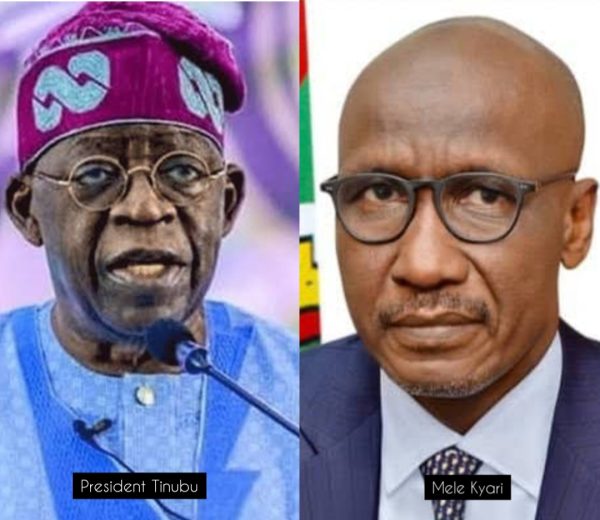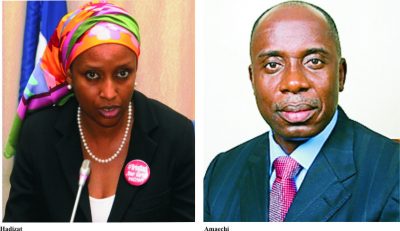Nigeria’s Fuel Paradox: Refineries, Regulations, Rising Prices
By Fortune Ulu
In a nation blessed with vast oil reserves, Nigeria finds itself grappling with a perplexing reality: skyrocketing fuel prices despite the recent addition of Africa’s largest refinery to its energy landscape. The Dangote Refinery, a $19 billion behemoth, was heralded as a game-changer for Nigeria’s petroleum sector. Yet, months after its inauguration, Nigerians continue to bear the brunt of exorbitant prices at the pump.
This article delves into the heart of Nigeria’s fuel price conundrum, raising many unanswered questions while exploring the intricate web of factors that have led to this paradoxical situation. From the role of the state-owned Nigerian National Petroleum Company (NNPC) in price determination to concerns over monopolistic practices, MMS Plus unravels the complexities that keep fuel prices high in a country that should, by all accounts, enjoy some of the lowest prices on the continent.
As the nation navigates through the contentious issues of market deregulation, currency devaluation, and infrastructural challenges, we also cast an eye towards the future. What solutions can extricate Nigeria from this fuel price quagmire? How can Africa’s largest oil producer balance the interests of its citizens with the demands of a global market? Join us as we explore these pressing questions and seek a path forward for Nigeria’s energy sector.
The Promise and Reality of the Dangote Refinery
The Dangote Refinery, which began operations in 2023, was expected to reduce fuel prices in Nigeria. However, several factors contribute to the persistent high prices. Market forces are preeminent since the refinery operates as a private business and sets prices based on global oil markets, not necessarily to provide cheap fuel for Nigerians. The Nigerian Naira has weakened significantly, affecting import costs for crude oil and other inputs. Distribution and transportation costs within Nigeria remain high and as a private enterprise, the Dangote Refinery aims to maintain profitability.
When the Dangote Refinery was inaugurated in 2023, it was hailed as a solution to Nigeria’s persistent fuel scarcity and price volatility. With a capacity to process 650,000 barrels of crude oil per day, it represented a significant leap in Nigeria’s refining capabilities. However, the reality has proven more complex:
Market-Driven Pricing: As a private enterprise, the Dangote Refinery operates on market principles, pricing its products based on global oil markets rather than domestic affordability concerns.
Forex Challenges: The refinery still relies on imported crude oil, purchased in dollars. With the Nigerian Naira’s continued depreciation, this has kept input costs high.
Distribution Bottlenecks: Nigeria’s inadequate distribution infrastructure continues to add significant costs to the final pump price.
NNPC’s Dual Role: Regulator and Competitor
The Nigerian National Petroleum Company (NNPC) plays a pivotal yet controversial role in the country’s fuel pricing mechanism as regulator and competitor. As the primary offtaker of Dangote Refinery’s products, the company plays a significant role in price determination as a result of its position. The company also plays a major role in importing and distributing a large portion of Nigeria’s fuel. We shouldn’t forget the import of government influence, as NNPC is state-owned. Despite recent commercialization efforts, the company plays a pivotal yet controversial role in the country’s fuel pricing mechanism as regulator and competitor. What about inherent political interference in pricing decisions? This arrangement has led to concerns about potential conflicts of interest and market manipulation.
In the prevailing circumstances, the NNPC is the primary fixer of prices and the situation raises monopoly concerns. NNPC’s dominant position in both production and distribution creates a quasi-monopolistic environment. As a result, limited competition may reduce incentives for price reductions and efficiency improvements. The arrangement could potentially stifle the growth of other private refineries and importers.
We should not be unmindful of the fact that Nigeria as a member of the global community is also impacted by global economic factors. Global oil price fluctuations continue to impact domestic prices. Nigeria’s economic challenges, including high inflation and foreign exchange scarcity, contribute to pricing pressures.
Contending Views and Factors:
On government perspective, Heineken Lokpobiri, minister of state for petroleum (oil), said the government had no role in fixing the pump price of petrol, saying it was the responsibility of the NNPC to do so. The government argues that NNPC’s involvement ensures stable supply and some level of price control. It defends the arrangement as necessary for energy security.
But the private sector has been strident in criticizing government intervention in what should be a free market and argues that true deregulation would lead to more competition and potentially lower prices. Consumer advocacy groups, also, have been expressing concerns about the impact of high fuel prices on the cost of living while calling for greater transparency in pricing mechanisms.
But the Nigeria Employers Consultative Association (NECA) is appeased with what it considers a landmark agreement between the federal government and Dangote on the sale of petrol to the NNPC. The body believes that the pact could signal the end of petrol scarcity and also lead to reduced pressure on foreign exchange demand. NECA expects from October 1 when Dangote begins to buy crude in Naira, the pump price of petrol will reduce.
NECA Director General Adewale-Smart Oyerinde is upbeat about the pricing agreement that led to the lifting of petrol from the Dangote refinery. “This singular event,” he said, “has the potential to change the perennial fuel scarcity situation in the country and also reduce the pressure on the Naira.
”While the current pump price is way above the expected price due to dollar-denominated crude oil purchase, it is expected that the beginning of the crude-for-Naira scheme agreed on from October 1 will cause a reduction in the pump price.
He commended the government’s intention to set up a one-stop shop that would harmonize the interests of all stakeholders, including regulatory and security agencies, to ensure a seamless implementation of the initiative.
”Such one-stop-shop would not only enhance the swiftness of approvals for the lifting of refined products but also be cost-effective,” Oyerinde reportedly said.
The Monopoly Question
The current arrangement has raised alarm bells about the potential for monopolistic practices:
Limited Competition: With NNPC controlling a large share of both production and distribution, there’s little room for price competition.
Barrier to Entry: The dominant position of NNPC and Dangote Refinery may discourage other players from entering the market.
Efficiency Concerns: Lack of competition could reduce incentives for operational efficiency and cost reduction.
Flowing into these concerns is the fact that the locally refined Dangote petrol has a price tag that is higher than imported petrol. This is raising a lot of concern and agitation. Oil marketers are also agitated and have questioned NNPC’s petrol pricing formula, insisting that the local fuel shouldn’t exceed the imported one in price. The Independent Petroleum Marketers Association of Nigeria (IPMAN) stressed that there is no cause for celebration if imported products are cheaper.
“If NNPC can sell Dangote product higher than the imported product, it doesn’t make sense. What is the celebration we’ve been having all this while then for?” IPMAN’s National Welfare Officer, John Kekeocha, said on television.
But the national oil company while releasing the price of petrol obtained from the Dangote Refinery indicated that the price was fixed in line with the provisions of the Petroleum Industry Act (PIA). By the provisions of the Act, petrol prices are not set by government, but negotiated directly between parties. The outcome of the negotiation was for the NNPC to buy at N898 per litre from the private refinery, paying in USD for September 2024 PMS offtake, as Naira transactions will only commence on October 1, 2024.
The price negotiation resulted in fuel from the Dangote refinery selling for N950.22 per litre in Lagos; N960.22 in Oyo; N980.22 in Rivers; N992.22 in Abuja; N999.22 in in Kaduna; N999.22 in Kano; N999.22 in Sokoto and N1,019 in Borno. Before now NNPC retail outlets in Lagos sold petrol for around N855 and N897 in Abuja.
Even though the Dangote refinery refuted and countered NNPC’s claim, describing it as “both misleading and mischievous,” it did not state the petrol cost price.
In all of this, the IPMAN executive said it had been assumed that the product would be relatively cheaper because it’s no longer being shipped in from abroad. He argued that the fuel from Dangote could not be costlier because it had been stripped of a huge part of supply logistics. He said the prices shared by the NNPC could be discounted if petrol subsidy continues.
But the game changer is the absence of subsidy or under-recovery as a factor in the present pricing mechanism. Speaking on that, Oyeyemi Oke, a partner at AO2LAW, said the absence of a subsidy line item in the NNPC’s breakdown makes a big difference as to whether the Dangote refinery product is less expensive.
“How we should look at it is that if they are selling it at half the price or government is funding the shortfall and the amount based on the pricing that was received still puts it at N950, without any type of shortfall funding, what it means maybe is that it is cheaper at the Dangote refinery as opposed to importation, which the government claims to be selling at half the price,” Oke said.
Economic Factors at Play
Several macroeconomic factors contribute to the high fuel prices:
Global Oil Prices: Despite being an oil producer, Nigeria’s fuel prices are still influenced by global market trends.
Inflation: Nigeria’s high inflation rate at 34.19% puts upward pressure on all prices, including fuel.
Forex Scarcity: Limited access to foreign exchange increases costs for importers and refineries alike.
The Deregulation Debate
The fuel pricing issue is at the heart of a larger debate about market deregulation in Nigeria. While the government argues that some level of control is necessary to ensure stable supply and protect consumers, free market advocates contend that full deregulation would attract investment, increase efficiency, and eventually lead to lower prices. In contention also are social concerns where critics of deregulation point to the potential for short-term price spikes and the impact on vulnerable populations.
Environmental and Sustainability Considerations
The focus on petroleum refining and distribution raises questions about Nigeria’s energy future. For instance, about climate commitments, how does the emphasis on oil align with Nigeria’s climate change commitments? Are there renewable alternatives? Is there a case for redirecting investments towards renewable energy sources? Could improving public transportation reduce the country’s overall fuel dependency?
The Way Forward
The path forward for Nigeria involves balancing the need for a functioning, competitive market with the social responsibilities of ensuring affordable energy access. This will require careful policy-making, stakeholder engagement, and a commitment to long-term economic reforms. Addressing the fuel price challenges will require a multifaceted approach:
1. Phased/Gradual Deregulation: Gradually open the market to allow more private sector participation while implementing measures to mitigate or manage the social impacts.
2. Strengthen Regulatory Framework: Empower independent regulatory bodies to ensure fair competition and pricing. It is important to enhance the powers and independence of the Nigerian Midstream and Downstream Petroleum Regulatory Authority to ensure fair competition.
3. Infrastructural Investment: Improve refining capacity, storage facilities and distribution networks to reduce costs.
4. Diversify Energy Mix: Invest in renewable energy and public transportation to reduce oil and petrol dependence.
5. Forex Policies: Implement measures to stabilize the Naira and improve forex availability.
6. Transparency Measures: Introduce clear, transparent, publicly accessible pricing mechanisms to build public trust.
7. Economic Diversification: Reduce the economy’s overall reliance on oil to mitigate the impact of global price fluctuations.
8) Support local refining: Encourage the development of modular refineries and provide incentives for local production.
9) Social safety nets: Develop targeted subsidies or support programs for vulnerable populations affected by high fuel prices.
10) Long-term economic diversification: Reduce the economy’s overall dependence on oil to mitigate the impact of global oil price fluctuations.
Conclusion: Navigating Nigeria’s Fuel Price Crossroads
Nigeria stands at a critical juncture in its energy history. The introduction of the Dangote Refinery, while a significant milestone, has not been the panacea many hoped for in addressing the country’s persistent fuel price challenges. Instead, it has highlighted the complex interplay of factors that continue to keep petrol prices high for everyday Nigerians.
The situation underscores a fundamental tension in Nigeria’s petroleum sector: the push and pull between market forces and social welfare. On one hand, the drive for efficiency, profitability, and attracting private investment argues for a deregulated, market-driven approach. On the other, the essential nature of fuel in the Nigerian economy and its impact on citizens’ livelihoods necessitates some form of price moderation and stability.
The role of the NNPC in this ecosystem remains a point of contention. While its involvement ensures a degree of government oversight, it also raises concerns about market distortion and potential conflicts of interest. The fine line between regulation and interference is one that Nigerian policymakers must navigate carefully.
Moreover, the fuel price issue is emblematic of broader challenges facing Nigeria: currency instability, infrastructural deficits, and an economy overly reliant on oil. Addressing fuel prices in isolation is unlikely to yield sustainable results without tackling these underlying issues.
Looking ahead, Nigeria’s path forward requires a delicate balancing act. It must foster a competitive, efficient fuel market while ensuring that the benefits of the country’s oil wealth are felt by its citizens. This may involve a gradual approach to deregulation, coupled with targeted interventions to protect vulnerable populations and investments in alternative energy sources.
Ultimately, the fuel price dilemma is not just an economic challenge, but a test of governance and social contract. How Nigeria resolves this issue will have far-reaching implications for its economic development, energy security, and the well-being of its people.
As Africa’s largest economy and most populous nation, Nigeria’s ability to navigate these choppy waters will not only determine its own future but could also set a precedent for other resource-rich nations grappling with similar challenges. The road ahead is complex, but with thoughtful policy-making, stakeholder engagement, and a commitment to transparency, Nigeria has the potential to turn its fuel price paradox into an opportunity for transformative change.








